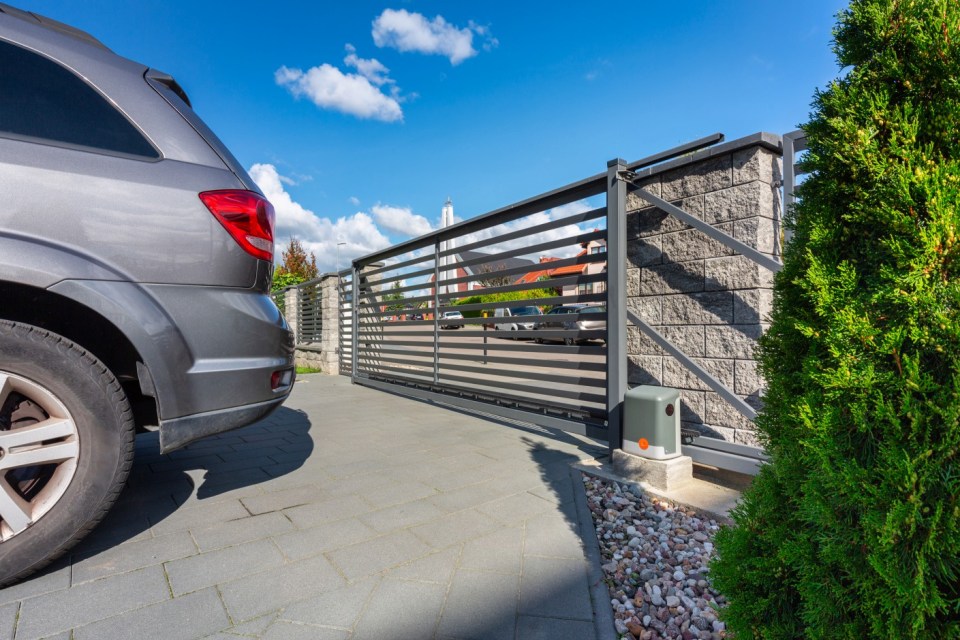Is it illegal to park across someone’s driveway and can people park in front of your house?

MOTORISTS that block someone's driveway in a desperate attempt to park are bound to rustle some feathers.
Although it can be incredibly frustrating to find somebody parked in such a way that blocks you in, what does the law actually say on it?
Hop it!
There's nothing more annoying then returning home to find someone parked across your driveway, and many peoples first instinct's are to assume they're breaking the law by doing so.
Rule 243 of the Highway Code explains where drivers can and cannot park.
This section of the code specifically advises drivers against stopping or parking in front of an entrance to a property.
Blocking a driveway would break this rule.
The Highway Code
Breaking the Highway Code could land drivers a fine, points on their license and in some cases even imprisonment.
Much of this depends what category the rule falls under.
Some rules state "do not", which acts as cautionary advice.
Other rules state "you must not", and these are the rules that are legally binding, carrying heavier penalties.
Sadly, the 243 rule against blocking someone's drive is advisory and therefore the act itself is not illegal.
The law
There is no legal requirement for your neighbours to try to leave the space outside your house for you, though some may do so out of courtesy.
It is actually not "your right" to park in front of your property unless you have a designated parking space and although it might be tempting you're not allowed to save "your" space with a cone either.
Leaving anything on the road can be classed as an obstruction and is illegal - unless you've been given permission by the council.
Any member of the public can park on your street, provided it isn't governed by residents' parking permits and as long as they are complying with restrictions and not causing obstructions.
If your street uses permits, anyone with the right permit can park anywhere in the relevant zone.
There's also no law on how long someone can park in the same space for, unless police think the car has been abandoned.
If your neighbours take up a space on the street when they have a perfectly good driveway they don't use, they're doing absolutely nothing wrong in the eyes of the law - even if they're denying you access to that much-needed last parking space.
It is, however, illegal to park directly outside a school, on the zig-zag lines to a pedestrian crossing, and in designated marked bays you don't have a permit for.
The small print
Although it's not illegal to park across someone's driveway, drivers are committing a parking offence if their wheel is over the dropped kerb.
There are two types of dropped kerbs: those for pedestrians, especially those with buggies or in wheelchairs, and those for drivers to access driveways.
Vehicles parked across dropped kerbs can be ticketed, even if they're not fully blocking it, but parking very close to a dropped kerb or directly opposite it isn't illegal, even if it restricts access.
According to the Highway Code, a car cannot cause an obstruction to the road but this does not include obstructing access to private land.
My driveway or yours?
A strange legal loophole means anyone can park on your driveway - and there's not much you can do about it.
There have been a number of cases in the UK where homeowners have been stuck with a stranger's car on their driveway, only to be told neither police nor local authorities have the power to move it.
In the instance of a stranger parking on your driveway, an issue arises where the line between criminal and civil law is blurred.
If a car is parked on a public road and it's blocking your driveway, local authorities certainly have the power to issue a fine.
But once the car moves on to your drive, it's technically on private property - and local councils have no jurisdiction.
Councils are required to remove abandoned cars from both public and private property, but if the motor in question is taxed, insured, has a valid MOT and isn't in a dangerous condition, they are unlikely to touch it on private land.
Police will acknowledge the car is technically trespassing, but they will classify it as a civil offence, dropping it far down their priority list and meaning you would need an eviction notice from the courts.
How can you resolve it?
In the rare case that someone is blocking your driveway and will not leave, you should call the local council as it is a civil matter, it is not a police case.
The police could become involved if the car is causing an obstruction in the road.
It is important to keep calm to avoid the situation from escalating, and this will help you to come to an understanding with the other driver so it doesn't happen again.



